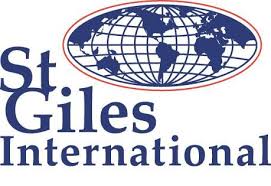
Strategic Leadership and Sustainability Problem Solving and Decision Making During Crises
Course ID: 2507144501112EGI
Course Dates : 14/07/25 Course Duration : 10 Studying Day/s Course Location: Istanbul, Turkey
Language: Bilingual
Course Category: Professional and CPD Training Programs
Course Subcategories: Leadership and Management Excellence
Course Certified By: * Projacs Academy
* Professional Training and CPD Programs
Certification Will Be Issued From :
KSA
Course Fees: £6,662.03
Vat Not Included in the price. VAT may vary depending on the country where the course or workshop is held.
Click to Pay
Date has passed please contact us Sales@e-s-hub.com
Course Information
Introduction
The ability to lead strategically during crises is a defining competency in today’s rapidly evolving professional landscape. Organizations face an unprecedented array of challenges, from environmental disasters and economic downturns to geopolitical tensions and public health emergencies. These disruptions demand leaders who can navigate ambiguity, make informed decisions under pressure, and align their actions with sustainability principles. This course addresses the intersection of strategic leadership, problem-solving, and sustainability, equipping participants with tools to not only survive but thrive during periods of uncertainty.
Leadership during crises requires more than traditional management skills; it calls for adaptive thinking and ethical decision-making frameworks. Research by scholars such as John Kotter highlights the importance of visionary leadership in times of change, while sustainability frameworks like the United Nations’ Sustainable Development Goals (SDGs) underscore the need for long-term, systemic approaches. Despite these insights, many organizations struggle to integrate crisis management with sustainable practices. The gap between theory and practice often leaves leaders ill-prepared to address multifaceted challenges that require both immediate action and enduring solutions.
Consider the case of Patagonia, a company renowned for its commitment to environmental sustainability even amid global supply chain disruptions. When faced with material shortages due to climate-related events, Patagonia’s leadership team leveraged innovative sourcing strategies without compromising their eco-friendly ethos. Such examples demonstrate how strategic foresight combined with sustainability principles can yield competitive advantages. However, replicating this success requires structured training and access to proven methodologies—precisely what this course offers.
Participants will delve into advanced problem-solving techniques rooted in systems thinking and design thinking, enabling them to tackle complex issues holistically. By examining real-world scenarios, including responses to the 2008 financial crisis and the COVID-19 pandemic, learners will understand how effective leaders balance short-term imperatives with long-term resilience. Moreover, they will explore the role of stakeholder engagement in fostering trust and collaboration during turbulent times.
For individuals, mastering these competencies translates into enhanced career prospects and greater influence within their organizations. Leaders equipped with strategic acumen are better positioned to drive innovation, inspire teams, and achieve measurable outcomes. On an organizational level, investing in this training fosters a culture of adaptability and responsibility, positioning companies as industry leaders capable of weathering storms while contributing positively to society.
Ultimately, this course bridges critical gaps in knowledge and practice, empowering professionals to lead with purpose and precision. Whether addressing climate risks, navigating regulatory shifts, or managing reputational threats, participants will emerge prepared to confront crises head-on while championing sustainability as a core value. Through rigorous instruction, interactive exercises, and practical applications, this program ensures that every learner walks away with actionable insights and transformative capabilities.
Objectives
By attending this course, participants will be able to:
Analyze the interplay between strategic leadership and sustainability during crises using established frameworks such as Kotter’s Change Model and the SDGs.
Evaluate complex problems through systems thinking and design thinking methodologies to develop comprehensive solutions.
Design resilient organizational strategies that integrate risk mitigation with sustainable development goals.
Implement stakeholder engagement plans that build trust and foster collaborative decision-making during high-stakes situations.
Apply ethical decision-making models to resolve dilemmas arising from conflicting priorities during crises.
Who Should Attend?
This course is ideal for:
Senior executives and managers seeking to enhance their crisis leadership capabilities.
Sustainability officers and corporate social responsibility (CSR) professionals aiming to align their initiatives with broader organizational objectives.
Consultants and advisors tasked with guiding clients through periods of disruption.
Public sector leaders responsible for policy formulation and implementation during emergencies.
Mid-career professionals aspiring to transition into leadership roles with a focus on sustainability.
Training Method
• Pre-assessment
• Live group instruction
• Use of real-world examples, case studies and exercises
• Interactive participation and discussion
• Power point presentation, LCD and flip chart
• Group activities and tests
• Each participant receives a 7” Tablet containing a copy of the presentation, slides and handouts
• Post-assessment
Program Support
This program is supported by:
* Interactive discussions
* Role-play
* Case studies and highlight the techniques available to the participants.
Daily Agenda
The course agenda will be as follows:
• Technical Session 08.30-10.00 am
• Coffee Break 10.00-10.15 am
• Technical Session 10.15-12.15 noon
• Coffee Break 12.15-12.45 pm
• Technical Session 12.45-02.30 pm
• Course Ends 02.30 pm
Course Outlines
Foundations of Strategic Leadership and Sustainability
Understanding the dynamics of crises and their impact on organizations.
Key theories of leadership during uncertainty (e.g., Transformational Leadership).
Introduction to sustainability frameworks and their relevance to crisis management.
Case study analysis: Lessons from successful crisis responses.
Day 2:
Problem-Solving Methodologies
Systems thinking: Identifying root causes and interconnected factors.
Design thinking: Prototyping innovative solutions for complex challenges.
Tools for data-driven decision-making in volatile environments.
Group exercise: Applying problem-solving techniques to simulated scenarios.
Day 3:
Building Resilient Strategies
Aligning organizational goals with sustainability principles.
Risk assessment and contingency planning during crises.
Balancing short-term survival with long-term viability.
Workshop: Developing a strategic roadmap for resilience.
Day 4:
Stakeholder Engagement and Ethical Decision-Making
Mapping stakeholders and understanding their motivations.
Communication strategies for maintaining transparency and trust.
Navigating ethical dilemmas in high-pressure situations.
Role-play activity: Managing stakeholder conflicts during a mock crisis.
Day 5:
Implementation and Continuous Improvement
Translating strategies into actionable plans.
Monitoring progress and adapting to new challenges.
Best practices for embedding sustainability into organizational culture.
Final project presentation: Presenting a comprehensive crisis response plan.



















































